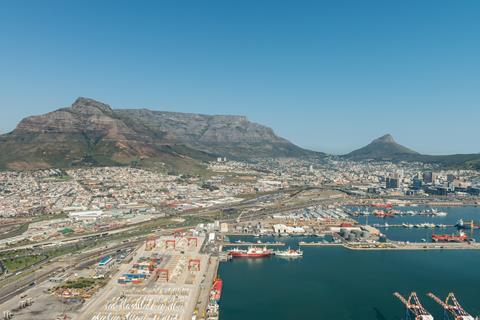A combination of factors over past few weeks have caused major delays despite pre-season assurances to the fresh produce industry
Fruit exporters are struggling to get their cargo through the port of Cape Town as staffing problems, failing equipment and the notorious summer South Easter Wind cause delays.

In some cases container vessels had been delayed by more than two weeks, resulting in normal market supply programmes being disrupted.
Exporters and logistics service providers have said that they are now scrambling to get the delayed containers on the water as soon as possible.
“While shipping through Cape Town is normally the best option for us, we need to do whatever is necessary to protect the product and get it to customers as soon as possible,” noted one exporter.
“We owe it to our growers to get this resolved as soon as possible. Despite the best pre-season discussions to get the issues in Cape Town resolved, we are back to square one.”
Table grapes and stonefruit are badly affected, with the situation expected to worsen when early pear varieties start arriving in the port of Cape Town.
Grape growers have said they are harvesting a crop of excellent quality and are hoping to get the fruit in the best condition for the market.
“We were hoping to recover from tough times the last two seasons, but what can you do when matters totally out of your control scupper the best laid plans,” Orange River table grape growers said.
The delays are even more problematic for stonefruit growers and exporters.
“Due to the present delays gaps are developing in our arrivals in the UK and Europe,” one exporter said. ”It takes up to 30 days to deliver the fruit in the UK ports and then it still needs to be distributed.”
Emergency steps include shipping fruit through Eastern Cape ports, but this is an expensive option.
In the early grape season Namibian growers shipped increased volumes of containers through the port of Walvis Bay in Namibia. This is also a very expensive option for Namibian growers, and in particular Orange River growers.
Exporters said they doubted whether Walvis Bay could become a major fruit exporting port for South African exporters. They pointed out that facilities required for a smooth fruit export operation need to be used over longer periods of time and not just on a short seasonal basis.
Fruitnet understands that container vessels due to sail from Cape Town to the US and Canada are also stuck in Cape Town.
Meanwhile exporters have said they believe there will be strong support for the programme of specialised reefer shipments from Cape Town to the UK and Europe which will cover the next eight to ten weeks.
“Volumes need to be booked three weeks ahead of the possible arrival of the vessel before it will be confirmed for loading, but despite this, and given the problems with the container terminal, we believe there will be strong demand,” said one exporter.



